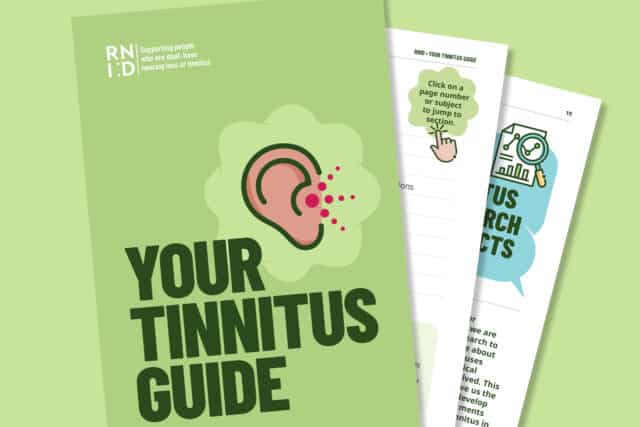Max Barker works for a creative marketing agency producing content for clients, including Disney and Odeon. Here, Max tells us how he improves his mental health and management of tinnitus whilst also helping others. This is Max’s story.
Max’s story
I’ve had tinnitus for three years now. I woke up one day and had a constant, high-pitched noise in my head. It felt like the tinnitus I’d noticed in the past when I’d been to a gig or somewhere loud. But what concerned me is that I hadn’t been to a gig or festival or anything else which could have triggered it. On top of that, I started to feel some dizziness, even when I was sitting or lying down; feeling a bit seasick, a bit ‘off’.
I spoke to my dad – who’s a retired GP – and he told me to see how it goes and take something called stugeron to help with the seasickness. It did but the tinnitus continued. It could get louder or quieter, but it was always there.
Healthcare for tinnitus
I’ve seen plenty of healthcare professionals since, over quite a long process of appointments. I had an MRI scan to double check everything was okay with my brain and I had hearing tests, pressing a button in a booth when I heard the tones being played. This was difficult because some of the tones were very high pitched like my tinnitus, making them harder for me to hear.
Other than that, I don’t seem to have any severe hearing loss, which is good. But I do think it’s affected my hearing, especially when there’s lots of people talking or music blasting.
At my appointments, they said that there isn’t a cure. I was offered therapy, which I didn’t want as I thought it would make me focus on the tinnitus even more, or a hearing aid-type device that can play the same tone in your ear as the tinnitus and help to mask it.
Accepting my tinnitus
It felt frustrating and demotivating that there was just no way to actually get rid of it. I think generally in life when you have an injury or an illness, you expect to get over it, expect to get better. But tinnitus isn’t like that. Tinnitus is just this thing, something you have to cope with. I’ve just had to deal with it in my own way.
I decided to research into it and looked at a lot of YouTube videos, for example. Knowing that I’m not really alone – that it’s not just me that has this constant noise in my head – gave me a sense of relief.
I’ve tried quite a few things, including distracting myself with the telly or radio and using high frequency generators online that play through my earphones as I work. If I have that on for a while, when I stop it, then – just for a moment – I can’t hear my tinnitus. It’s a very odd sensation, having silence again, that nice sense of relief. But it lasts less than a minute.
I think it was hard initially to accept that this is just how my life is now – to never have a sensation of silence again in my life is sad, really. But I think as I’ve grown to accept it, and the years have gone by, I’ve just slowly got used to it.
Managing mental health and finding my motivation
I count myself lucky that I can deal with it now and continue my life more or less as normal. And what’s interesting is that since I started running to raise funds for RNID, a couple of people have come up to me and said ‘Oh, I have tinnitus as well’. I find that really humbling because obviously it’s such an invisible condition.
Anxiety can aggravate tinnitus and I think running is a great way to feel better and not so panicked. With tinnitus, I think it’s important to make sure you’re looking after your mental health. Our bodies feel a lot less stressed as we’re moving, so it kind of gets that energy out there and keeps you going.
This whole process has made me feel like I’m really achieving something – where it’s great to be helping yourself and, as an added bonus, helping so many other people as well by sharing and raising awareness.

